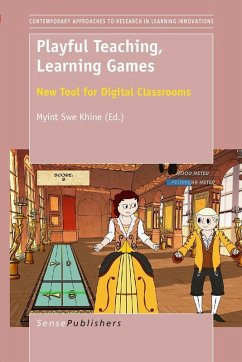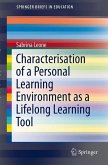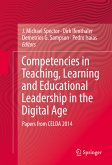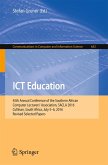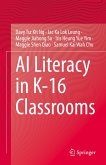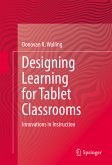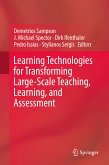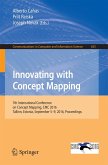Educators around the world acknowledge the fact that we live in the knowledge society and ability to think systematically is one of the necessary skills in order to function effectively in the 21st century. In the past two decades, popular culture introduced digital games as part of leisure activities for children and adults. Today playing computer games is routine activity for children of all ages. Many have agreed that interactive computer games enhance concentration, promote thinking, increase motivation and encourage socialisation. Educators found their way in introducing game-based learning in science education to entice the students in teaching difficult concepts. Simulation games provide authentic learning experience and virtual world excites the students to learn new phenomena and enliven their inquisitive mind. This book presents recent studies in game-based learning and reports continuing attempts to use games as new tool in the classrooms.
Dieser Download kann aus rechtlichen Gründen nur mit Rechnungsadresse in A, B, BG, CY, CZ, D, DK, EW, E, FIN, F, GR, HR, H, IRL, I, LT, L, LR, M, NL, PL, P, R, S, SLO, SK ausgeliefert werden.

